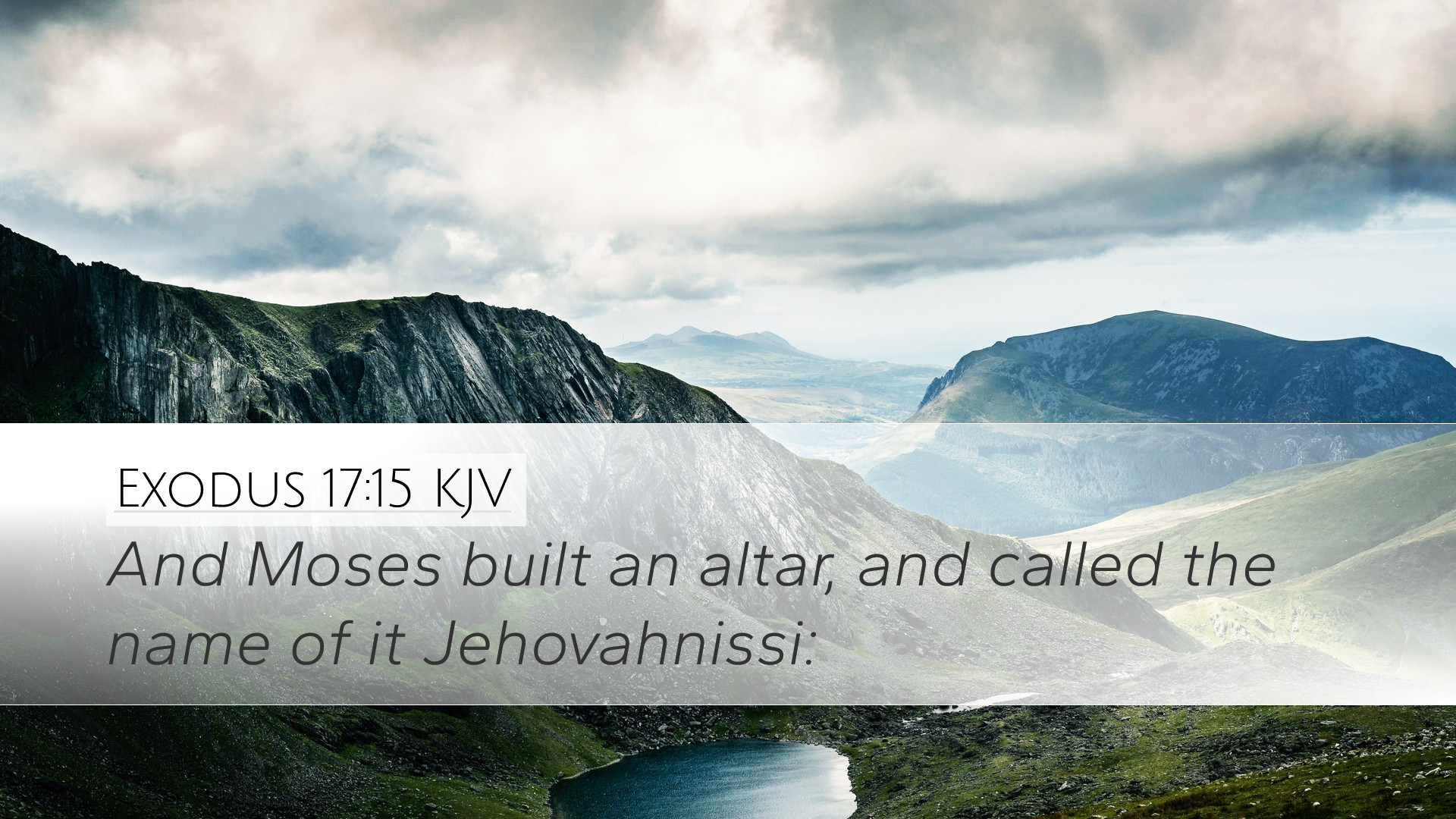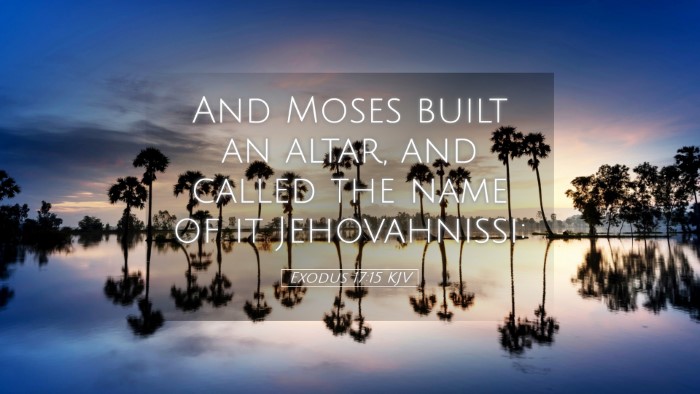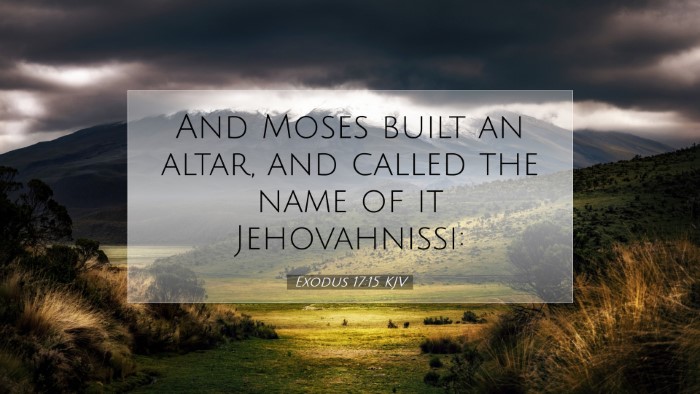Exodus 17:15 - A Commentary
Verse: "And Moses built an altar, and called the name of it Jehovahnissi." (Exodus 17:15)
Introduction
The narrative of Exodus 17 encapsulates significant themes pertinent to faith, deliverance, and the covenantal relationship between God and His people. The establishment of an altar by Moses reflects a pivotal moment in Israel's journey where God's intervention in battle is commemorated. This commentarial exposition amalgamates insights from esteemed public domain scholars such as Matthew Henry, Albert Barnes, and Adam Clarke, aimed at enriching the understanding of this biblical text for pastors, students, and theologians.
Contextual Background
The events of Exodus 17 occur post-Exodus, as the Israelites traverse the wilderness after their liberation from Egyptian bondage. Their journey is fraught with trials that test their faith and reliance on God. Notably, this chapter recounts the Amalekite attack, symbolizing the persistent challenges faced by believers. Moses' actions in response serve as a lesson in divine reliance and the importance of memorializing God’s faithfulness.
Moses and the Altar
Significant Action: The construction of the altar by Moses represents a formal act of worship and acknowledgment of God's supremacy and support in a time of distress.
- Matthew Henry: Henry emphasizes that altars in the Old Testament serve as remembrance of God's aid and deliverance; they symbolize a space where divine-human encounters occur.
- Albert Barnes: Barnes explicates that Moses' building of the altar was integral in recognizing God's miraculous intervention during battle, thereby reinforcing God’s sovereignty.
- Adam Clarke: Clarke suggests that the construction of the altar signifies not only worship but also a strategic reminder for future generations of God's provision in times of need.
Understanding "Jehovahnissi"
The name Moses gives to the altar, Jehovahnissi, translates to "The Lord is my banner." This phrase encapsulates profound theological implications.
- Symbolism of Banners: In ancient warfare, banners (or standards) serve as symbols of identity, morale, and leadership. Thus, naming the altar signifies God as the unifying force and protector over Israel.
- Spiritual Application: The concept of God as a banner signifies believers' dependence on divine strength. It invites them to rally under the influence of God's power during their spiritual warfare.
- Moral and Ethical Implication: The altar acts as a reminder that victories in life are contingent upon divine assistance and should lead to a posture of gratitude and acknowledgment of God’s role.
Faith and Community
Building the altar was not merely a solitary act but one embedded within the greater community of Israel.
- Corporate Worship: Corporate remembrance encourages communal faith. The altar serves as a place where the people can gather and confess God's goodness as a collective body.
- Encouragement in Trials: Pastoral application can be seen in how communal worship fortifies individuals facing trials, fostering a collective resilience by remembering past deliverances.
Lessons for Today
Exodus 17:15 teaches important lessons that transcend the historical narrative and speak into contemporary faith practices.
- Establishing Memorials: It is crucial to establish 'memorials' in our lives, whether through literal practices or in the act of remembrance, signifying God's faithfulness.
- Acknowledging God's Provision: Recognizing God as the source of strength in our lives encourages dependence on His power rather than self-reliance.
- Community Remembrance: Pastors and leaders should help congregations to perpetuate collective memory of God’s past interventions as a means to instill faith during trying times.
Conclusion
Exodus 17:15 serves as more than a historical marker; it encapsulates vital truths about worship, community, and God's unwavering support. Through a holistic understanding of the passage, reinforced by insights from Henry, Barnes, and Clarke, readers are invited to reflect on their journey of faith, reminding themselves and their communities of who God is—a powerful banner under which they fight life’s battles.


